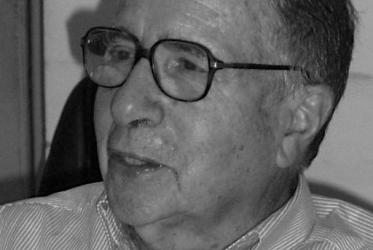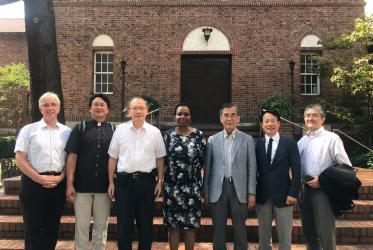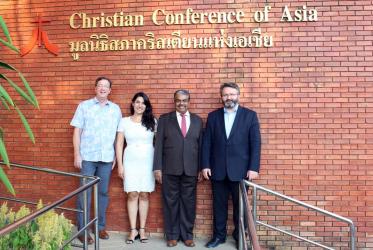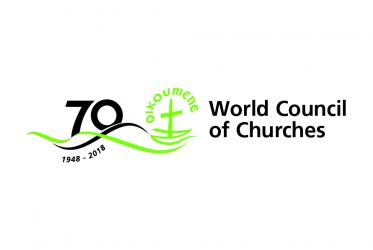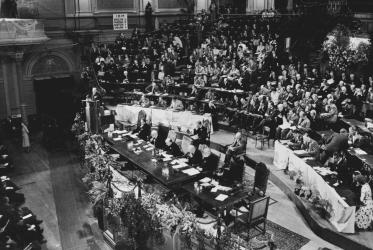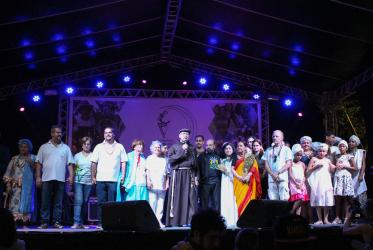Displaying 21 - 40 of 65
In Japan, spirit of koinonia deepens
26 September 2019
#WCC70: Children in the Ecumenical Movement
20 December 2018
Conciliar Unity: Whither Vision and Direction?
14 December 2018
Pope Francis at the World Council of Churches
31 May 2018
Theologian explores emerging model of empowerment and diakonia
17 December 2015
Interfaith workshop calls for justice and compassion in finance
03 December 2015
Taizé - Living Ecumenism
01 October 2015

